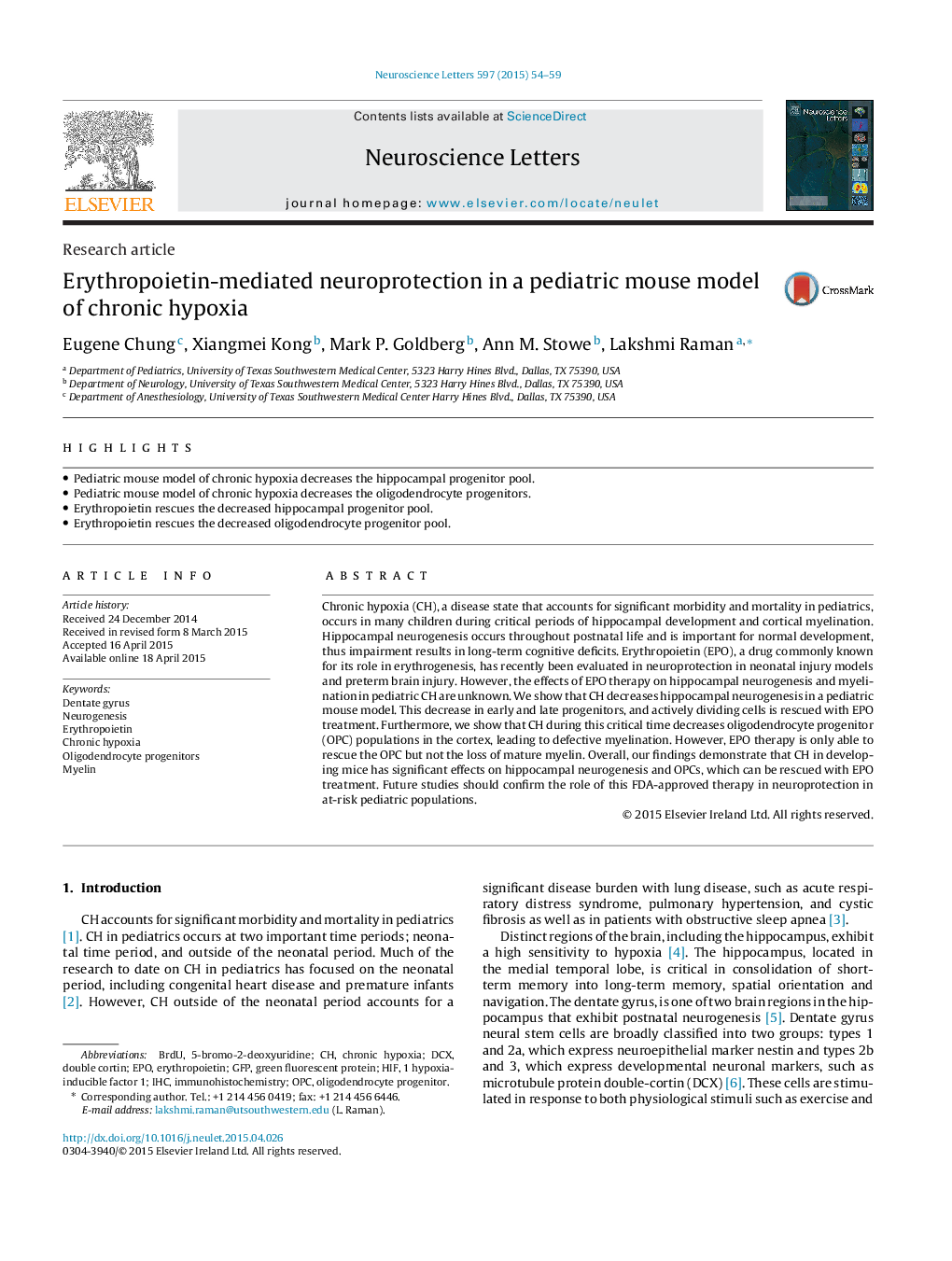| Article ID | Journal | Published Year | Pages | File Type |
|---|---|---|---|---|
| 6280699 | Neuroscience Letters | 2015 | 6 Pages |
Abstract
Chronic hypoxia (CH), a disease state that accounts for significant morbidity and mortality in pediatrics, occurs in many children during critical periods of hippocampal development and cortical myelination. Hippocampal neurogenesis occurs throughout postnatal life and is important for normal development, thus impairment results in long-term cognitive deficits. Erythropoietin (EPO), a drug commonly known for its role in erythrogenesis, has recently been evaluated in neuroprotection in neonatal injury models and preterm brain injury. However, the effects of EPO therapy on hippocampal neurogenesis and myelination in pediatric CH are unknown. We show that CH decreases hippocampal neurogenesis in a pediatric mouse model. This decrease in early and late progenitors, and actively dividing cells is rescued with EPO treatment. Furthermore, we show that CH during this critical time decreases oligodendrocyte progenitor (OPC) populations in the cortex, leading to defective myelination. However, EPO therapy is only able to rescue the OPC but not the loss of mature myelin. Overall, our findings demonstrate that CH in developing mice has significant effects on hippocampal neurogenesis and OPCs, which can be rescued with EPO treatment. Future studies should confirm the role of this FDA-approved therapy in neuroprotection in at-risk pediatric populations.
Keywords
Related Topics
Life Sciences
Neuroscience
Neuroscience (General)
Authors
Eugene Chung, Xiangmei Kong, Mark P. Goldberg, Ann M. Stowe, Lakshmi Raman,
